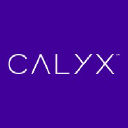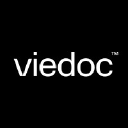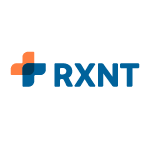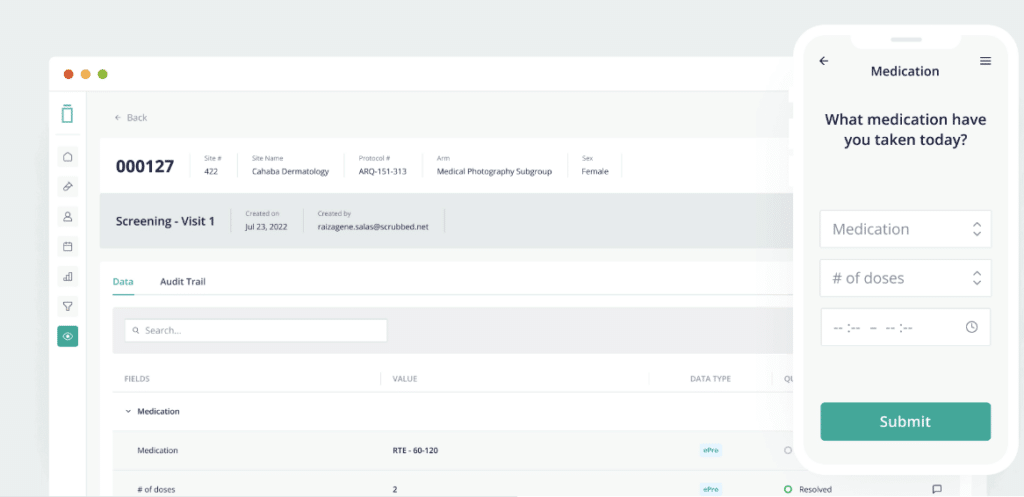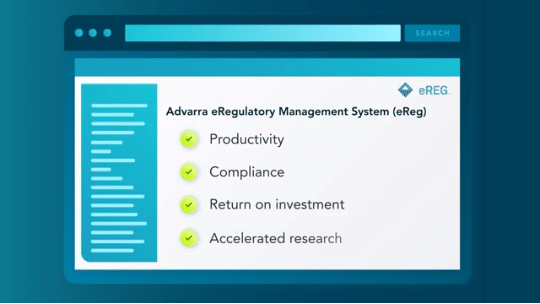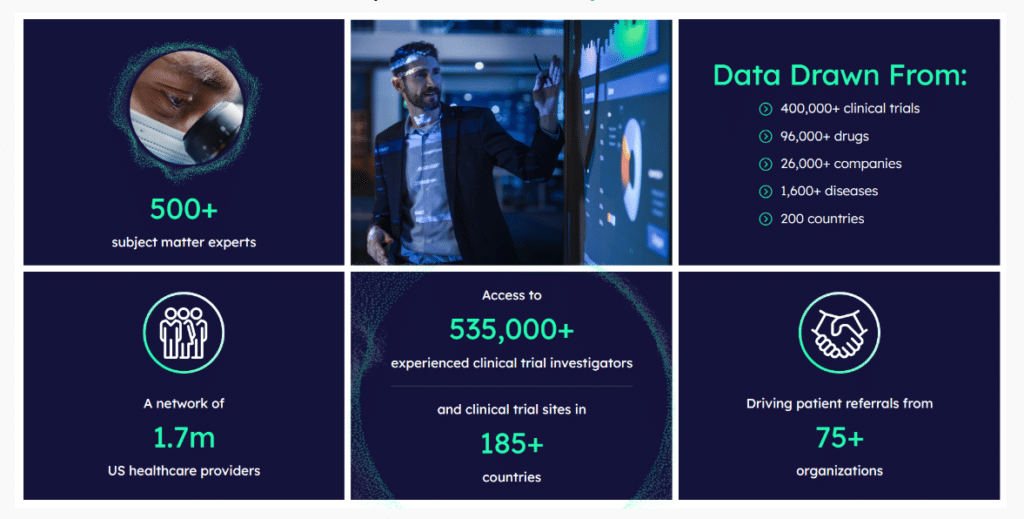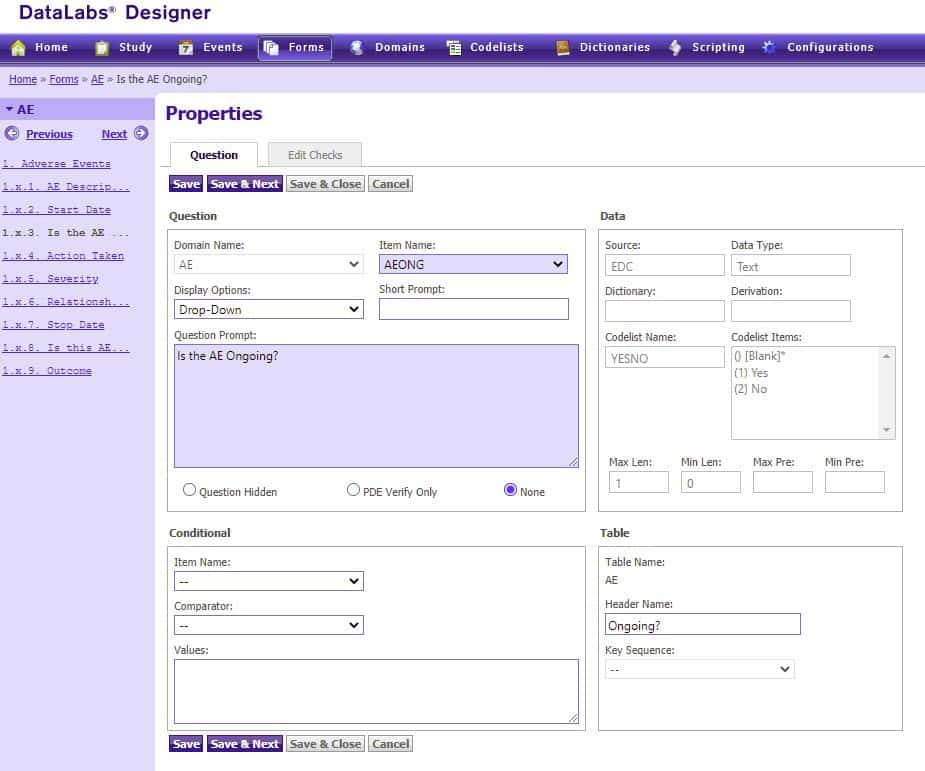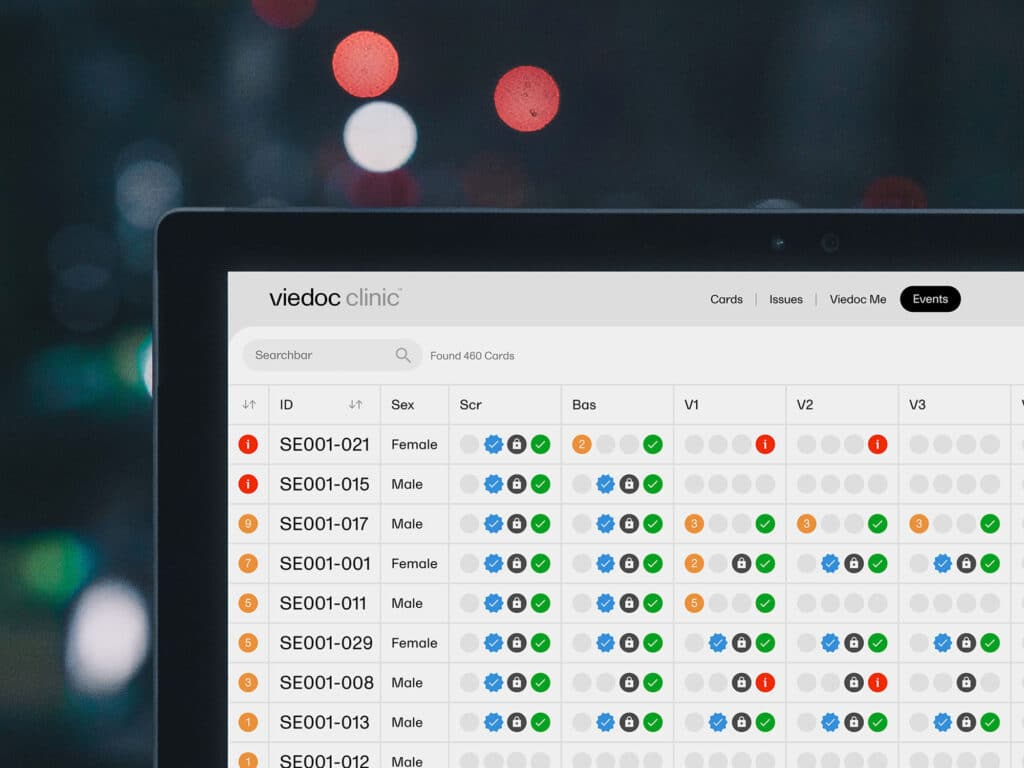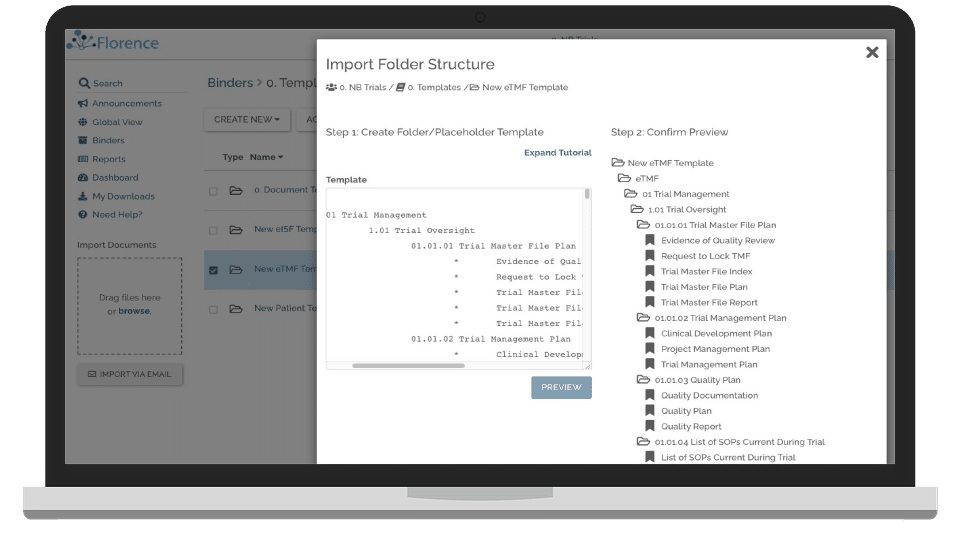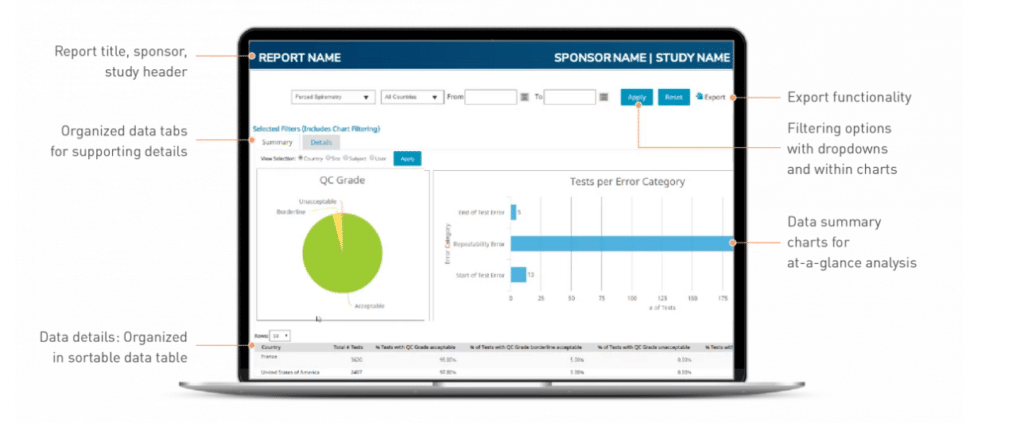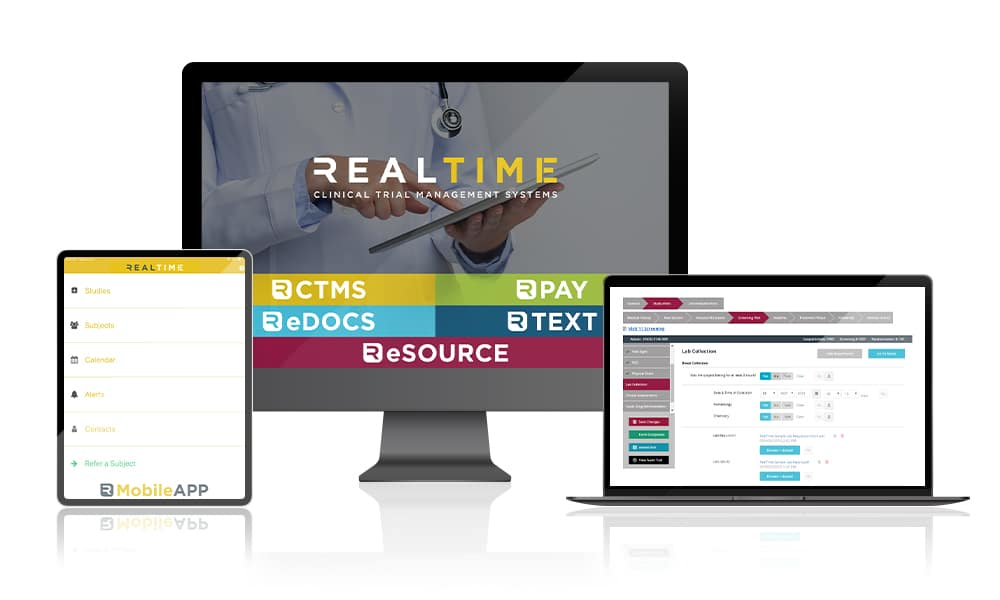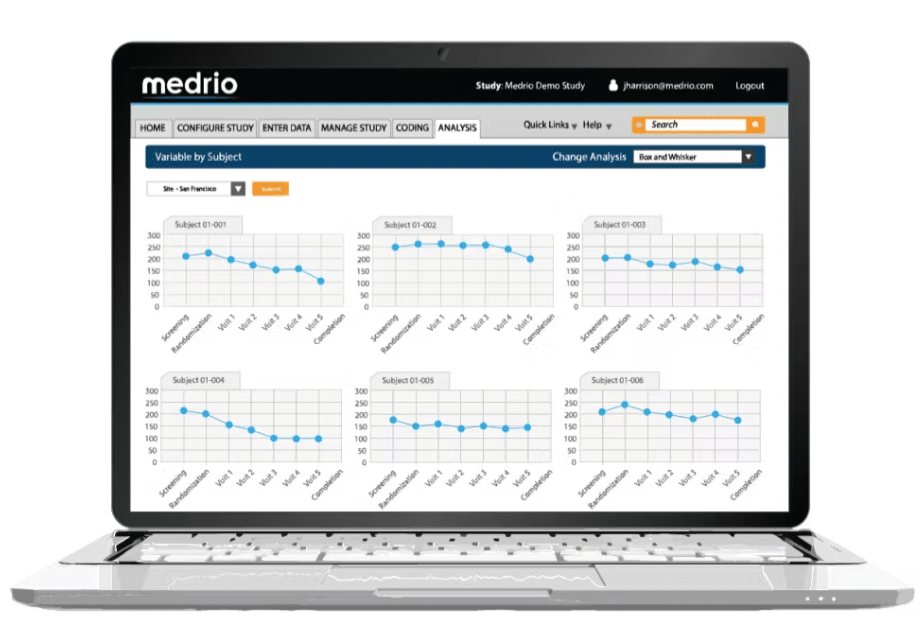10 Best Clinical Trial Management Software Shortlist
Here's my pick of the 10 best software from the 22 tools reviewed.
Our one-on-one guidance will help you find the perfect fit.
Navigating the complex world of clinical research can feel like a Herculean task. Clinical Trial Management Software (CTMS) serves as an essential tool, simplifying this intricate process by offering an end-to-end, web-based solution.
It's a valuable asset to any research organization, pharma startup, or biotech company looking to streamline its clinical data management and trial supply management. The built-in API also provides flexibility for custom integrations, enhancing interactions among stakeholders, and improving contract research organizations' output. Let's dive into some remarkable options that are primed to help you manage your clinical conductor duties with efficiency and compliance at the forefront.
What Is a Clinical Trial Management Software?
Clinical trial management software is a powerful tool that aids researchers, clinicians, and other healthcare professionals in planning, executing, and managing clinical trials. Often used by pharmaceutical and biotechnology companies, research institutions, and medical device manufacturers, these systems streamline the complex processes associated with clinical trials.
Using a CTMS, you can leverage its cloud-based system to store and manage patient data, monitor enrollment, and coordinate activities across different research sites. Particularly valuable features include eCRF and eCOA, as well as eConsent and eSource functionalities that provide a comprehensive audit trail. With features like templates, financial management tools, messaging, notifications, and mobile app accessibility, it offers you an efficient way to manage your clinical study.
With features like data collection and analysis, regulatory compliance tracking, participant management, and more, they serve to improve efficiency, enhance collaboration, and ensure the integrity and accuracy of trials. The end goal is a more structured, organized, and reliable approach to conducting and managing clinical research, driving innovation in healthcare and medical fields.
Best Clinical Trial Management Software Summary
| Tool | Best For | Trial Info | Price | ||
|---|---|---|---|---|---|
| 1 | Best for user-friendly interfaces and trial execution | Not available | From $120/user/month, (billed annually). | Website | |
| 2 | Best for multi-site trials and compliance management | Not available | Pricing upon request. | Website | |
| 3 | Best for global clinical trial solutions and comprehensive market analysis | Not available | Pricing upon request. | Website | |
| 4 | Best for integrated trial management and regulatory compliance | Free demo available | Pricing upon request | Website | |
| 5 | Best for robust data management and trial design | Not available | From $150/user/month, (min 5 seats). | Website | |
| 6 | Best for document management and streamlined trial collaboration | Not available | Pricing upon request. | Website | |
| 7 | Best for comprehensive trial enablement and management | Not available | From $130/user/month, (min 5 seats). | Website | |
| 8 | Best for real-time tracking of clinical trials and participant management | Not available | From $50/user/month, (billed annually). | Website | |
| 9 | Best for electronic trial master file (eTMF) management | Not available | Pricing upon request. | Website | |
| 10 | Best for decentralized clinical trials and data collection | Not available | Pricing upon request. | Website |
Best Clinical Trial Management Software Reviews
As a software solution for clinical trial management, Vial offers a blend of simplicity and robust functionality. Its design caters to user-friendliness, making it a valuable tool for individuals and teams who prioritize ease of use and effective trial execution.
Why I Picked Vial: In my evaluation process, Vial stood out due to its intuitive interface and efficient execution of trial processes. Its attention to user experience, paired with its solid feature set, sets it apart in the crowded field of clinical trial software. Its strengths in user-friendly interface design and trial execution made it a clear choice for this list.
Standout Features & Integrations:
Vial boasts a variety of important features, such as participant tracking, data capture, and analysis, as well as comprehensive trial execution tools. Noteworthy integrations include connections to laboratory systems, electronic health records, and other trial-related software, which further enhance its capabilities.
Pros and cons
Pros:
- Integration with a variety of trial-related systems
- Comprehensive trial execution tools
- User-friendly interface for easy navigation
Cons:
- Pricing may be steep for smaller research teams
- Interface may be too simplistic for users desiring complex features
- Annual billing may limit flexibility for some users
Advarra is a platform built to aid clinical trial management across multiple sites. It also includes advanced tools for regulatory compliance, making it a sound choice for organizations seeking to manage complex, multi-site clinical trials while adhering to all necessary rules and regulations.
Why I Picked Advarra: I chose Advarra because of its emphasis on multi-site trial management and compliance. When compared to other clinical trial management tools, Advarra stood out due to its robust features and specific focus on managing trials across multiple sites while maintaining compliance. Therefore, I determined it to be the best tool for this specific use case.
Standout Features & Integrations:
Advarra provides features like comprehensive multi-site trial management, regulatory compliance tools, and robust reporting functionalities. It integrates smoothly with many EDC systems, data analysis tools, and document management platforms, enabling a connected and streamlined workflow.
Pros and cons
Pros:
- Seamless integrations with other clinical trial tools
- Strong emphasis on regulatory compliance
- Comprehensive features for multi-site trial management
Cons:
- The user interface may have a steep learning curve for some users
- Could be complex for smaller trials or single-site management
- Pricing information is not easily accessible
Citeline provides solutions for global clinical trials and in-depth market analysis. The platform aggregates and analyzes data from a myriad of sources, enabling users to keep track of clinical trials worldwide and conduct comprehensive market research.
These abilities make it an exceptional choice for businesses operating or observing trials on a global scale.
Why I Picked Citeline: In selecting Citeline, its strength in providing a broad view of global clinical trials and offering comprehensive market analysis stood out. Judging by its comprehensive dataset and analytical capabilities, Citeline provides unmatched insights into global clinical trials.
This specificity and focus make it the 'Best for global clinical trial solutions and comprehensive market analysis.'
Standout Features & Integrations:
Citeline offers a comprehensive data set of global clinical trials and a suite of tools to analyze and visualize that data. Additionally, it integrates well with various business intelligence tools, extending the power of data analysis and reporting capabilities.
Pros and cons
Pros:
- Effective integrations with business intelligence tools
- Comprehensive market analysis tools
- Provides data on global clinical trials
Cons:
- Focus on global data may not be useful for localized operations
- Can be complex for new users
- Absence of transparent pricing information
Calyx provides a comprehensive clinical research platform that combines trial management and regulatory compliance functionality. This makes it a versatile tool for ensuring organized, compliant research practices and makes it a top choice for integrated trial management and regulatory compliance.
Why I Picked Calyx: In deciding on this list, Calyx emerged as a preferred option because of its unique integration of trial management with regulatory compliance mechanisms. It's distinctive in its approach, providing a holistic solution to trial management that considers regulatory needs.
This blend of functionality made me see Calyx as 'Best for integrated trial management and regulatory compliance.'
Standout Features & Integrations:
Key features of Calyx include its extensive trial management tools and robust compliance tracking capabilities. Furthermore, it provides an integrated electronic data capture system for seamless data management. It offers important integrations with data management and visualization tools that enhance its trial management capabilities.
Pros and cons
Pros:
- Seamless data management through integrated electronic data capture
- Extensive management tools
- Integrated trial management and regulatory compliance
Cons:
- Certain features may exceed the needs of small-scale trials
- Might be complex for users new to clinical trial management
- Lack of transparent pricing
Viedoc stands as a powerful software dedicated to streamlining and strengthening data management and trial design for clinical research. Its robust suite of features and user-friendly interface make it an optimal choice for researchers and institutions needing an intuitive yet robust solution for their clinical trials.
Why I Picked Viedoc: I selected Viedoc due to its unique ability to integrate complex data management systems with a comprehensive trial design toolkit. Its capacity to handle large volumes of data with precision sets it apart from its peers. Viedoc's superior functionality makes it ideal for robust data management and intricate trial design, two critical factors in successful clinical research.
Standout Features & Integrations:
Viedoc includes data collection, patient engagement, trial design, and electronic data capture features. Its analytics capabilities ensure an efficient and accurate understanding of trial data. Notable integrations include connections to medical imaging systems, laboratory systems, and electronic medical record systems, further enhancing its utility.
Pros and cons
Pros:
- User-friendly interface with intuitive navigation
- High-volume data handling capabilities
- Comprehensive data management and trial design functionalities
Cons:
- May have more features than smaller trials require
- Minimum of five seats required for the basic package
- Starting price may be higher than some competitors
Florence eTMF is a dedicated tool that focuses on facilitating efficient document management and fostering improved collaboration within clinical trials. Its robust document-handling capabilities and collaborative features make it an ideal solution for document management and streamlined trial collaboration.
Why I Picked Florence eTMF: Florence eTMF earned its spot on this list primarily because of its emphasis on simplifying document management and enhancing collaboration within clinical trials. It stands out with its dedicated tools for managing documents and facilitating communication between trial participants.
Because of these reasons, I consider Florence eTMF to be the 'Best for document management and streamlined trial collaboration.'
Standout Features & Integrations:
Florence eTMF shines with features like its centralized document repository, which provides an organized, easily accessible hub for all trial documents. It also offers robust collaboration tools designed to streamline communication and coordination between team members.
Integration-wise, Florence eTMF integrates well with a range of commonly used software in the clinical trial space, including data management, project management, and communication tools.
Pros and cons
Pros:
- Effective integrations with other clinical trial tools
- Robust collaboration tools for improved trial coordination
- Centralized document repository for efficient management
Cons:
- Learning curve may be steep for less tech-savvy users
- May be too specialized for some users, lacking broad trial management features
- Lack of transparent pricing information
Clario is a comprehensive clinical trial management software that offers a powerful suite of features for trial enablement and management. It provides a streamlined, organized approach to clinical research, making it an optimal choice for those who require full control and oversight of their trials.
Why I Picked Clario: I chose Clario for its comprehensive approach to trial enablement and management. Its robust feature set, coupled with its ability to manage all aspects of a clinical trial, make it a unique choice among other software options.
Clario's strength in comprehensive trial enablement and management makes it best suited for this role.
Standout Features & Integrations:
Clario comes packed with essential features including robust data collection and analysis, regulatory compliance tracking, and participant management. As for integrations, it provides compatibility with major electronic health records systems, laboratory systems, and other clinical trial software, enabling a more interconnected trial process.
Pros and cons
Pros:
- Good integration with other clinical systems
- Robust data collection and analysis
- Comprehensive suite of features for trial enablement and management
Cons:
- Slightly higher starting price compared to some other options
- A minimum of five seats required for the basic package
- Might be overwhelming for smaller teams due to its extensive features
Best for real-time tracking of clinical trials and participant management
RealTime Software Solutions brings a fresh perspective to the clinical trials management space with its emphasis on real-time tracking and participant management. The software's capabilities extend from patient recruitment to data management, all in real-time.
Why I Picked RealTime Software Solutions: I chose RealTime Software Solutions based on its emphasis on real-time monitoring and participant management. This focus allows the software to provide an immediate snapshot of trial progress and participant status, an aspect not all competitors offer.
Given this, RealTime Software Solutions stands as the best for real-time tracking and participant management in clinical trials.
Standout Features & Integrations:
RealTime Software Solutions excels in offering features such as instant trial monitoring, patient recruitment, and management, and streamlined data management. When it comes to integrations, the platform offers significant compatibility with EDC systems, patient recruitment tools, and data analytics solutions, among others.
Pros and cons
Pros:
- Diverse integrations with other healthcare and trial systems
- Strong focus on participant management
- Real-time monitoring capabilities enhance trial oversight
Cons:
- Pricing might be steep for some budgets
- May be complex for small teams or beginners in clinical trial management
- Only offers annual billing, not monthly
Phlexglobal is a solution specifically designed for managing electronic trial master files (eTMFs). By providing an easy-to-use interface and robust tools, it simplifies the organization, storage, and retrieval of eTMF data. This specialization makes Phlexglobal an ideal fit for organizations looking to improve their eTMF management.
Why I Picked Phlexglobal: I picked Phlexglobal due to its unique focus on electronic trial master file management. Comparing different platforms, Phlexglobal differentiated itself with its specialized tools for eTMF organization, making it an excellent choice for those specific needs. It is why I've deemed it as 'best for eTMF management.'
Standout Features & Integrations:
Phlexglobal features a comprehensive eTMF management system, advanced search functionalities, and a variety of reporting tools. It also integrates well with various other clinical trial software, which makes it easier to import and export data.
Pros and cons
Pros:
- Seamless integrations with various other clinical trial software
- Advanced search and reporting capabilities
- Dedicated eTMF management system
Cons:
- Requires training to effectively use all the functionalities
- May be over-specialized for organizations that need a broader range of tools
- Lack of clear pricing information
Medrio is a clinical trials management tool that specializes in decentralized trials and data collection. The platform supports data collection from multiple sources, and its decentralization capabilities enable remote management of clinical trials, which is key in an era when remote work is increasingly common.
Why I Picked Medrio: I selected Medrio for its focus on decentralized trials and robust data collection. These two areas of focus are becoming more important in clinical trial management due to increasing trends toward remote work and data-driven decision-making. Thus, Medrio shines in this area and is, in my view, the best tool for decentralized clinical trials and data collection.
Standout Features & Integrations:
Key features of Medrio include its comprehensive data collection tools, support for decentralized clinical trials, and an intuitive user interface that simplifies complex processes. Medrio integrates seamlessly with a variety of data analysis tools, and EDC systems, and also supports direct data imports from various sources.
Pros and cons
Pros:
- Seamless integrations with data analysis tools
- Robust data collection and management capabilities
- Emphasis on decentralized clinical trials makes it ideal for remote teams
Cons:
- Its strong focus on decentralization may not suit all trial management styles
- May have a learning curve for those not familiar with decentralized trials
- Pricing is not publicly available, which could deter some users
Other Clinical Trial Management Software
- ResearchManager
For collaborative research and workflow management
- Medidata Rave CTMS
For optimized clinical operations and study management
- Clinion
Good for paperless clinical trial management
- ClinCapture
Good for user-friendly electronic data capture
- Veeva Vault CTMS
Good for medical technology clinical trials
- Octalsoft
Good for scalable clinical trial management systems
- BS CTMS
Good for comprehensive trial management solution
- Fusion eClinical Suite
Good for integrating multiple clinical trial systems
- OpenClinica
Good for open-source clinical trial solutions
- Oracle Clinical
Good for decentralizing clinical trials
- TrialKit
Good for mobile data capture in clinical trials
- Datatrak
Good for enterprise-level clinical trial management
Selection Criteria For Clinical Trial Management Software
When it comes to clinical trial management software, the nuances of each platform can significantly impact a team's efficacy and the overall success of a study. I've extensively tested and researched a multitude of these tools, and I've been particularly vigilant about certain key aspects that can enhance or hinder a research team's work.
Core Functionality
A competent clinical trial management software should enable users to:
- Conduct data collection and management efficiently
- Facilitate patient recruitment and retention
- Coordinate site management
- Streamline trial monitoring
- Oversee inventory management
Key Features
For this niche, the following features matter the most:
- Electronic Data Capture (EDC): A tool that allows the collection of clinical trial data in an electronic format is a must for real-time, accurate data monitoring.
- Randomization: This feature helps balance patient allocation across different trial arms, ensuring the validity of the study.
- Electronic Patient-Reported Outcomes (ePRO): An essential feature for collecting patient responses or feedback directly.
- Regulatory Compliance Management: Tools with this feature ensure that all data and processes comply with necessary regulations like HIPAA, GCP, and GDPR.
- Study Designing: A tool should allow users to design their study layout according to their specific requirements.
Usability
When it comes to usability, the following factors are significant:
- Intuitive Interface: Clinical trial software needs to have a clear, easy-to-navigate layout that allows users to quickly find and access different modules of the platform.
- Scalability: The ability to handle increasing amounts of work and accommodate growth is crucial, especially for larger trials or expanding organizations.
- Role-Based Access Control: A system that allows admins to limit access based on user roles is key for maintaining data integrity and confidentiality.
- Training and Support: Given the complexity of clinical trials, having readily available and responsive customer support, along with comprehensive training resources, is essential.
Most Common Questions Regarding Clinical Trial Management Software (FAQ's)
What are the benefits of using clinical trial management software?
Clinical trial management software offers multiple benefits, including:
- Efficiency: By automating various tasks, these tools reduce manual labor, save time, and streamline workflow.
- Data Accuracy: Digital data collection minimizes errors associated with manual data entry, thus ensuring data accuracy.
- Collaboration: These platforms offer a central hub for all trial-related activities, fostering better communication and collaboration among teams.
- Regulatory Compliance: Built-in compliance features help maintain adherence to regulatory standards like HIPAA, GCP, and GDPR.
- Real-Time Monitoring: The software allows real-time monitoring of trial progress, facilitating timely intervention and decision-making.
How much does clinical trial management software cost?
The cost of clinical trial management software varies significantly based on the size of the clinical trial, the number of users, and the specific functionalities required. Some providers offer tiered pricing, where you pay per user per month, while others may charge a flat rate.
What are the pricing models for these tools?
Typically, vendors offer several pricing models:
- Per User/Month: You pay a certain amount for each user every month.
- Per Study: You pay a one-time fee for each study conducted using the software.
- Flat Rate: You pay a flat monthly or annual fee for unlimited access to the software.
What is the typical range of pricing?
Prices can range from $25/user/month for basic packages to several thousand dollars per month for enterprise-level solutions that offer advanced features.
What is the cheapest and most expensive software?
The cheapest paid software can start as low as $25/user/month, such as TrialKit, while the most expensive ones like Oracle Clinical can cost several thousand dollars per month, especially for larger clinical trials or for more complex features.
Are there any free clinical trial management software options?
Yes, there are a few free options available like OpenClinica, which offers a free version of their software. However, these free options often have limitations on features and user capacity and are best suited for small-scale trials or for initial exploratory use before transitioning to a paid solution.
Other Clinical Management Software Reviews
Summary
In conclusion, selecting the ideal clinical trial management software relies heavily on understanding your unique needs and trial requirements. Such software offers substantial benefits like streamlined workflows, data accuracy, enhanced collaboration, regulatory compliance, and real-time monitoring of trial progress. However, the perfect tool for one organization may not be the same for another.
Key Takeaways
- Define Your Requirements: Clarify what specific functionalities, features, and compliance standards your trial necessitates. Do you need document management capabilities? Are integrations with existing systems critical? Answering these questions helps narrow down suitable options.
- Consider User Experience: Software usability significantly affects team productivity and software adoption rates. Seek software with a user-friendly interface, easy onboarding, and good customer support. Role-based access, an intuitive dashboard, and simple navigation are crucial aspects of clinical trial management software.
- Budget Appropriately: Pricing varies widely among these tools. Understand the pricing model that aligns best with your budget and the scale of your trials. While affordability is essential, ensure not to compromise on crucial features for the sake of cost savings. Some vendors offer free versions or trials, which are worth exploring before committing to a paid plan.
Navigating the landscape of clinical trial management software may seem daunting, but armed with the right knowledge and clear objectives, you can make an informed decision that will significantly improve your clinical trial processes.
What Do You Think?
Of course, this guide is not exhaustive, and the world of clinical trial management software continues to evolve with new tools and solutions entering the market. If you've come across an excellent tool that wasn't included in this list or have personal experiences with the tools I've mentioned, I invite you to share your insights. Your contributions could help others make more informed decisions in their quest for the perfect clinical trial management software.





